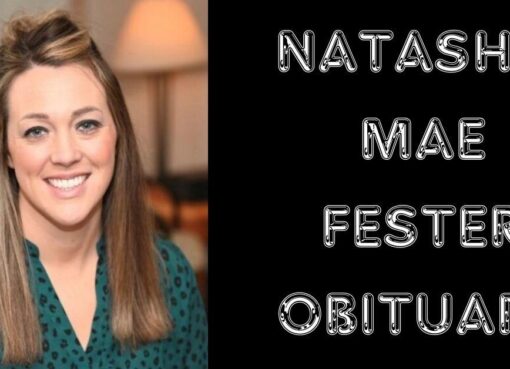Simplifying Life for a More Fulfilling Lifestyle

In a world characterized by consumerism, excess, and constant busyness, the philosophy of minimalism has emerged as a beacon of simplicity, clarity, and purpose. Rooted in the belief that less is more, minimalism advocates for paring down possessions, decluttering spaces, and prioritizing experiences over material possessions. Beyond a mere lifestyle trend, minimalism is a mindset shift that fosters a deeper sense of fulfillment, freedom, and contentment by focusing on what truly matters. In this exploration, we delve into the essence of minimalism, its transformative impact on life and well-being, and practical strategies for embracing a simpler, more fulfilling lifestyle.
Understanding Minimalism: Beyond Materialism
At its core, minimalism is a philosophy that challenges the prevailing culture of consumerism and accumulation, advocating for intentional living and conscious consumption. Contrary to popular misconceptions, minimalism is not about deprivation or austerity; rather, it is about distilling life to its essential elements, freeing oneself from the burden of excess, and embracing a lifestyle of purpose, clarity, and authenticity.
The Principles of Minimalism
1. Intentionality
At the heart of minimalism lies intentionality – the deliberate choice to focus on what adds value and meaning to one’s life while letting go of the rest. By aligning actions with values, goals, and priorities, minimalism empowers individuals to make mindful decisions about how they spend their time, energy, and resources, leading to greater satisfaction and fulfillment.
2. Decluttering
Decluttering is a central tenet of minimalism, involving the systematic removal of physical, mental, and emotional clutter from one’s life. By simplifying possessions, organizing spaces, and letting go of excess, individuals can create a sense of calm, clarity, and order, fostering a more serene and harmonious living environment.
3. Quality Over Quantity
Minimalism emphasizes quality over quantity, encouraging individuals to invest in items of lasting value and significance rather than succumbing to the allure of fleeting trends and impulses. By curating a collection of carefully chosen possessions that serve a purpose and bring joy, minimalists can cultivate a deeper appreciation for the things they own and reduce waste and consumption.
4. Mindful Consumption
Mindful consumption is a cornerstone of minimalism, urging individuals to approach purchases with discernment, mindfulness, and intentionality. By questioning the necessity and utility of each acquisition, avoiding impulse buys, and seeking alternatives to conspicuous consumption, minimalists can reduce their environmental footprint, save money, and live more sustainably.
The Transformative Power of Minimalism
1. Mental Clarity and Focus
Minimalism fosters mental clarity and focus by reducing distractions, overwhelm, and decision fatigue associated with excess possessions and commitments. By decluttering physical spaces and simplifying daily routines, minimalists can create a conducive environment for concentration, creativity, and productivity, enabling them to pursue their passions and goals with greater clarity and purpose.
2. Emotional Well-being and Contentment
Minimalism promotes emotional well-being and contentment by fostering gratitude, mindfulness, and inner peace. By cultivating a deeper appreciation for the present moment and the simple pleasures of life, minimalists can cultivate a sense of abundance and fulfillment that transcends material possessions, leading to greater happiness and life satisfaction.
3. Financial Freedom and Security
Minimalism offers financial freedom and security by encouraging conscious spending, frugality, and debt reduction. By living below their means, prioritizing needs over wants, and avoiding lifestyle inflation, minimalists can build savings, invest in experiences, and achieve financial independence, freeing themselves from the pressures of consumerism and materialism.
Practical Strategies for Embracing Minimalism
1. Start Small
Begin your minimalist journey by identifying areas of your life that could benefit from simplification, such as your wardrobe, home, or digital clutter. Start with small, manageable tasks, such as decluttering a single room or committing to a digital detox, and gradually expand your efforts over time.
2. Declutter Mindfully
Approach decluttering with mindfulness and intentionality, focusing on the items that truly add value and joy to your life. Ask yourself whether each possession serves a purpose, brings you joy, or aligns with your values and priorities. Let go of items that no longer serve you, whether through donation, recycling, or responsible disposal.
3. Cultivate Gratitude
Practice gratitude as a cornerstone of your minimalist lifestyle, acknowledging and appreciating the abundance that surrounds you. Cultivate a gratitude practice by journaling, expressing appreciation for the simple pleasures of life, and reframing challenges as opportunities for growth and learning.
4. Prioritize Experiences Over Possessions
Shift your focus from acquiring material possessions to investing in experiences that enrich your life and create lasting memories. Prioritize experiences such as travel, spending time with loved ones, pursuing hobbies, and exploring nature, as these are sources of joy, fulfillment, and personal growth that transcend material wealth.
Conclusion: Embracing a Life of Purpose, Clarity, and Authenticity
In a world defined by excess, complexity, and constant striving, minimalism offers a path to a simpler, more fulfilling way of life. By embracing the principles of minimalism – intentionality, decluttering, quality over quantity, and mindful consumption – individuals can cultivate a deeper sense of purpose, clarity, and authenticity in their lives. As we embark on our minimalist journey, let us prioritize what truly matters, let go of the rest, and embrace a life of greater meaning, contentment, and joy. Through the transformative power of minimalism, we can create space for what brings us true happiness and fulfillment, one intentional choice at a time.


